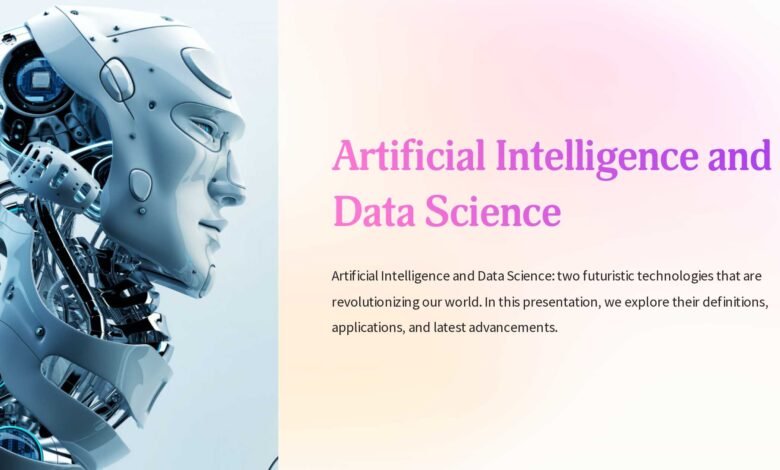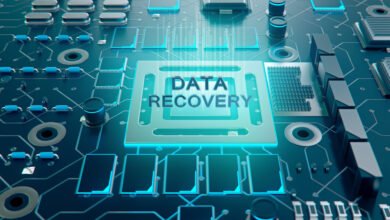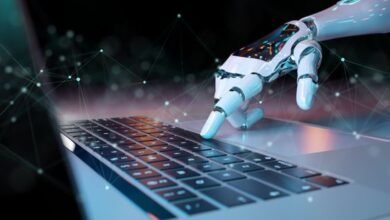
Artificial Intelligence (AI) and Data Science are buzzwords and transformative powers shaping our world. This article will examine the cooperative connection between these two domains, their development, real-life applications, challenges, and the prospects they paint.
Evolution of Artificial Intelligence
The evolution of artificial intelligence traces an extraordinary journey from its theoretical bases in antique stands to the cutting-edge advances of today. This change, marked by the emergence of machine learning and neural networks, showcases how AI has developed from theoretical ideas to concrete, transformative technologies, creating how we infuse and interact with intelligence in machines.
Historical Context
The roots of AI are traced back to early philosophy, but it took physical form in the mid-20th century. From early rule-based systems to today’s advanced neuronal networks, the evolution of AI is an exciting journey.
Emergence of Machine Learning
Machine learning, a subset of AI, has become a driving force. Machine learning’s ability to extract perception from data without explicit programming has revolutionized healthcare and finance.
Fundamentals of Data Science
Data Science involves extracting insights from large datasets using art and science. It involves intense matches of statistical analysis, machine learning, and domain expertise, converting raw data into actionable intelligence. This field is essential in deciphering patterns, forecasting trends, and making informed decisions, making it a necessary component in the ever-expanding landscape of modern technology and innovation.

Definition and Components
Data Science is the art of taking out insights from data. Comprising statistics, machine learning, and domain skills, it is the backbone of informed decision-making.
Importance in Modern Technology
In the age of information, data is exposed. Data Science empowers businesses to turn raw data into operating intelligence, driving innovation and efficiency.
The Symbiotic Relationship
AI and Data Science complement each other. AI’s ability to analyze vast datasets enhances Data Science, while Data Science fuels AI algorithms.
How AI Enhances Data Science
AI’s pattern recognition and predictive capabilities amplify the efficiency of data analysis, leading to more accurate insights.
Data Science’s Contribution to AI
Quality data is the inspiration of AI. Data science ensures the accessibility of clean, appropriate data, enhancing the performance and sureness of AI models.
Applications in Real Life
Applications in Real Life illustrate the tangible impact of artificial intelligence and data science on our daily existence. From revolutionizing healthcare by enabling predictive diagnostics to transform financial sectors through fraud detection, these technologies optimize decision-making. In marketing, personalized strategies driven by AI and data science reshape consumer experiences. These real-world applications emphasize the transformative power, enhancing efficiency and driving innovation in several aspects of our lives.
Healthcare
AI and Data Science revolutionize identification and treatment, from predictive dissecting to personalized medicine.
Finance
These technologies detect fraud, optimize investments, and provide data-driven insights for better decision-making in the financial sector.
Marketing
From targeted advertising to customer behavior analysis, AI and Data Science redefine marketing strategies for optimal results.
Challenges in AI and Data Science
Challenges in AI and Data Science encompass ethical difficulties and security concerns. Ethical challenges arise from potential biases in AI algorithms, demanding transparent and fair solutions. Data security and privacy issues highlight the need for robust safeguards in an era where data is invaluable. Balancing innovation with responsible practices becomes pivotal, navigating the complex terrain of creating advanced technologies without compromising ethical standards and the security of sensitive information.

Ethical Concerns
The stand-up of AI raises social questions, such as algorithmic bias and the responsible use of technology.
Data Security and Privacy
As data becomes more valuable, security and user privacy become paramount challenges.
Future Trends
Future artificial intelligence and data science trends point to continuous innovation and integration with appearing technologies. Advancements in machine learning algorithms promise modern AI applications, while cooperation with the Internet of Things (IoT) creates an attached world. Quantum computing and other developments will maximize what AI and data science can perform. These trends suggest a high-powered future where these technologies develop, intertwining with other cutting-edge developments to shape our world in extraordinary ways.
Advancements in Machine Learning
Continuous creation in machine learning algorithms pledges more refined AI applications.
Integration with the Internet of Things (IoT)
Integrating AI and IoT will generate a connected world with the latest devices that make data-operate conclusions.
Impact on Industries
The Impact on Industries is a transformative narrative depicting how artificial intelligence and data science revolutionize diverse sectors. Industries embracing these technologies witness unprecedented changes, from streamlined operations to the emergence of innovative business models. This transformative impact enhances efficiency, reduces costs, and fosters a climate of continuous adaptation. Integrating AI and data science reshapes industries, marking a paradigm shift towards data-driven decision-making and promoting a more competitive and dynamic business landscape.

Transformative Changes
Industries embracing AI and data science are experiencing unprecedented transformations, from streamlined operations to new business models.
Increased Efficiency
Automating techniques and leveraging data acuities improve efficiency, decreasing expenses and increasing productivity.
Role of AI and Data Science in Decision-Making
The Role of AI and Data Science in Decision Making is climactic, entrusting businesses with predictive analytics and interaction intellect. AI’s ability to analyze extended datasets and forecast trends provides invaluable insights. Data science offers clean, suitable data availability, improving the reliability of AI models. Collaboratively, they encourage informed decision-making by utilizing data-driven insights, from expecting demand trends to mitigating risks. This collaboration describes a paradigm shift where data-driven insights are essential for strategic decision-making in developed civilizations.
Predictive Analytics
AI and Data Science encourage businesses to make informed conclusions based on predictive analytics, foreseeing directions and risks.
Business Intelligence
Integrating AI and data science certifies organizations with outstanding business intelligence and guides strategic decisions.
Educational and Career Opportunities
Ethical Considerations in AI and Data Science delve into the managed use of technology. Addressing algorithmic bias and promoting transparency are crucial aspects. The ethical implications revolve around fair AI applications, avoiding discrimination, and ensuring accountability for decisions made by these technologies. Balancing innovation with a commitment to ethical standards is imperative to the transformative potential of AI and Data Science responsibly, fostering trust and integrity in developing and deploying these powerful tools.

Demand for AI and Data Science Professionals
The job market is witnessing demand for skilled professionals proficient in
AI and Data Science.
Skillsets and Qualifications
Aspiring individuals need a blend of technical skills, domain expertise, and a commitment to lifelong learning.
Ethical Considerations
Educational and professional AI and Data Science chances are exploding as enterprises increasingly depend on these technologies. The job market is demanding skilled experts experienced in both domains. Desiring individuals can prepare by acquiring technical skills, professional expertise, and lifelong learning commitment. The evolving landscape presents exciting chances for those desiring dynamic careers at the forefront of technological innovation and data-driven decision-making.
Bias in AI Algorithms
Addressing bias in AI algorithms is necessary for these technologies’ proper and ethical applications.
Responsible Data Science Practices
Promoting ethical conduct in data science involves transparent practices and accountability.
Innovations and Breakthroughs
Innovations and breakthroughs in AI and data science represent the dynamic evolution of these fields. AI’s foray into creativity, from art to music, pushes boundaries and generates novel outputs. Simultaneously, Data Science accelerates research in genomics and environmental science. These breakthroughs redefine human capability and scientific discovery, underscoring the transformative potential of AI and data science to innovate and redefine possibilities across various domains.
AI in Creativity
From art to music, AI is pushing the boundaries of human creativity, generating innovative and unique outputs.
Data Science in Research
Data Science accelerates research and discovery in fields like genomics and environmental science.
Case Studies
Case Studies offer real-world awareness of successful implementations of AI and Data Science. These examples demonstrate the physical benefits of integrating these technologies across diverse industries. By examining these cases, we gain valuable lessons and understand the transformative impact these innovations have on solving complex problems and driving positive outcomes in various fields.
Successful Implementations
Examining real-world success stories demonstrates the tangible benefits of integrating AI and Data Science.
Lessons Learned
Analyzing failures and challenges provides valuable insights for continuous improvement in AI and Data Science applications.
The Future Landscape
The Future Landscape of AI and Data Science promises a deeper collaboration, presenting a united front to tackle complex challenges. This coordinated relationship holds the potential to unlock uncommon advancements, shaping a future where innovative technologies seamlessly work together to address intricate problems and elevate the capabilities of AI and Data Science to new heights.
Collaboration of AI and Data Science
The future promises deeper collaboration, where AI and Data Science work hand in hand to tackle complex problems.
Emerging Technologies
Advancements in quantity quantification and other technologies will further push the limits of what AI and Data Science can perform.
Conclusion
The possibilities are limitless in this dynamic landscape of Artificial Intelligence and Data Science. The continuous evolution of these fields ensures a future where innovation knows no bounds.
FAQs
How does AI impact decision-making in business?
Through guessing analytics and business intelligence, AI empowers businesses to make informed decisions, foresee trends, and mitigate risks.
What ethical considerations should accounted for in AI and data science?
Addressing bias in AI algorithms and encouraging responsible data science practices are pivotal ethical considerations.
What are the technologies shaping the future of AI and Data Science?
Quantum computing and other technologies are to push the boundaries of what AI and Data Science can execute.
How can individuals prepare for a career in AI and Data Science?
Aspiring individuals should develop technical skills, domain expertise, and lifelong instruction to excel in AI and Data Science.








